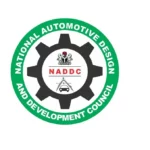Writing is conceived to be a lonely business. You take your ideas, check some sites for essay writing sometimes, try to beat them into shape, and hope that what you have written will be easily understandable. But for real, after you write something, you occasionally sit back and wonder, “Is this the best I can do? Did I make my point clear?” This is where peer review comes in handy in the writing process, especially for students writing their papers. It is a cooperative device that allows students to improve their work, including writing the ideas and structure behind the writing, not just for grammar and spelling errors. Let’s dive into this article to understand why peer review is magical and how it makes student writing amazing.
Preparing for the Real World
Peer review is not a limited phenomenon for the classroom – it is developing students for writing careers throughout their lives in a few ways:
- Educational.
- Professional.
- Creative.
Now, if you place your work in a Freelance Folder targeting clients, learning to accept criticisms and edit your work based on them is vital. In these settings, clients and editors will not simply tell you where the typos are; they will simply fix them. Some will expect you to do some personalization.
As any writer knows, simply getting feedback can be helpful, but knowing how to accept it and use it to improve your work is a valuable step for anyone in the field. Peer review passes essential skills on to students about considering feedback from others as positive and not a condemnation. In the workplace, it can be that extra edge that sets a good writer apart from an exceptional one.
The Power of New Angle of Vision

The idea of a student peer review is also that it presents a new and objective opinion regarding the text. As students, when you’ve devoted time to writing an essay, you can be so engrossed that you would barely notice certain problems. All students probably read something, looked through the text, and thought, “What was the author’s intention here?” That’s where a peer comes in. They have not spent the last few hours looking at it. They are looking at it without the preconceptions and biases you have formed, which means they are in a position to pick on the areas you think you have written well, but actually, they are not well written.
Since your classmates work on similar tasks, they know what you are striving for in your paper and can respond to their experience. They can provide recommendations that will never cross your mind, but they make a lot of sense when presented to you. These kinds of comments assist you in refining what you have to say and how you say it. But it is not only about preventing failures – it is about enhancing the text’s broadly defined coherence, pick, and efficacy. New ideas free you from your mindset and allow you to look at what you do from a new perspective, which is important for actual change.
Learning to Solve Problems for Student Success
In order to write a peer review for college, sometimes it requires sharing your opinion. Peer assessment allows students to undertake a task that refines their ability to assess the works of others or the work that fellow students present. To provide useful feedback, you have to carefully analyze the text:
- What are its strengths?
- What could make this argument more compelling?
This type of evaluation engages students to reflect on the technical aspects of writing as a peer review process, and they apply those lessons to their writing. Not dramatically, but when students evaluate a classmate’s paper and try to be critical and analytic, they too begin to develop such patterns in their writing. It is possible your peer had flow issues, and then you are like, “Wait, I do that too.” Or perhaps they got the structure right that you’d like to refine your delivery on, as you’ve heard of that song and dance.
The Importance of the Writing Community for The Support of Its Members
What can be discouraging is writing effective peer feedback, which can be intimidating, especially when the only comments that anyone ever offers are from teachers armed with a red pen. This relieves pressure in some ways because the writers are often their peers – other academics or researchers in the same field. Classmates are people we interact with; hence, when they give feedback, it becomes a discussion. The purpose of peer review and its principle is to ensure that students get a platform to learn from their counterparts in a less traditional, rigid environment. Everyone’s in the same boat, working toward the same goal – improving their writing.
This sense of community can be tremendously inspiring, and the shared goal of developing better solutions exclusively enhances the benefit obtained from the process. It is something that makes you concerned about writing good content, knowing that your classmates will be the ones reading your papers, and at the same time, you would also be concerned about the feedback you will be giving out to your classmates. Giving feedback is also very tiresome, but it also builds confidence. Once students understand that they are gaining certain peer review techniques for writers to make suggestions that can be valuable to their peers, they see the value of what is being done. Unlike in the regular writing process, where writing is seen as an individual task, peer review makes it a group affair in which all clients benefit from the group’s expertise.
Conclusion
Lastly, the freedom of the argument to pass through the rigors of peer review is not simply about honing an essay. It’s about typing, understanding teamwork, problem-solving, and developing writing skills through peer review for writing. Students find themselves as readers, developing different fresh perspectives and exploring strategies that can revolutionize the writing process. Yes, it involves time and energy, but the outcome is all worth it. So, the next time you have an essay due, do not be tempted to leave out a peer review for students because your future writing self will be grateful to you!

 Join Daily Trust WhatsApp Community For Quick Access To News and Happenings Around You.
Join Daily Trust WhatsApp Community For Quick Access To News and Happenings Around You.


